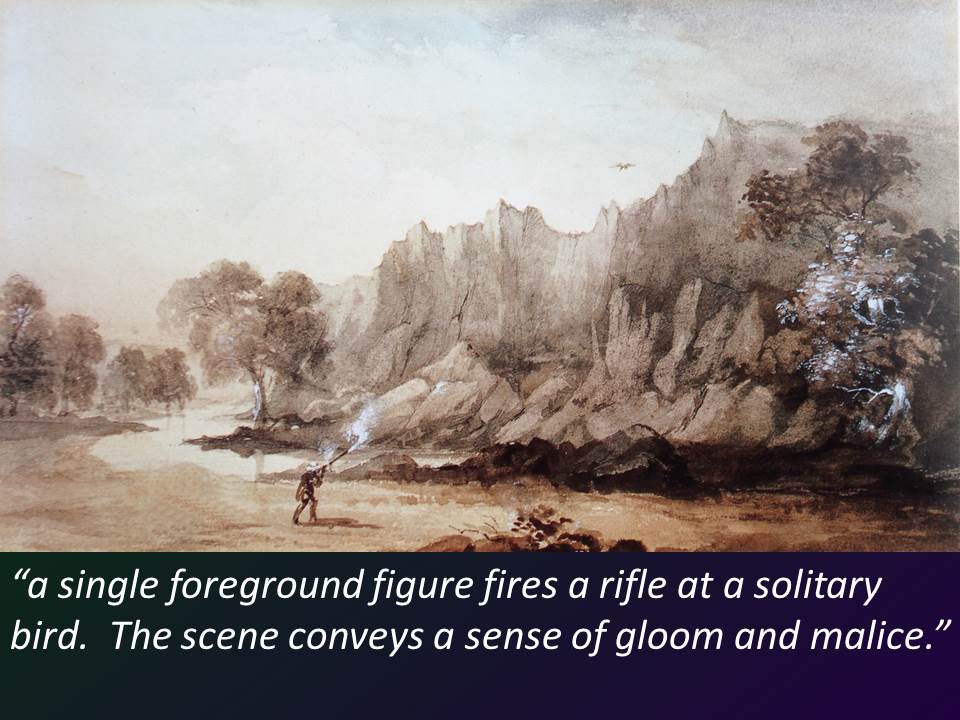[I have replied to John separately] Re the Sturt sketch, Jean was certainly close to the intended message with her impressions. While the bird is central in the scene as shown, I had removed Sturt’s human figure
which transforms the picture when re-inserted. Note the comment of the critic –

From: John Walter [
Sent: Thursday, 12 May 2016 3:23 PM
To: 'Geoffrey Dabb';
Subject: RE: [canberrabirds] Postscript
Geoffrey,
I was interested to see your post re a bird in Von Guerard’s painting of Mt William. Some years ago I was given a book by my friend Stephen Temple Watts. Called “Views of Victoria in the steps of Von Guerard
“ This book contains 51 of Von Guerard’s paintings which are mirrored by paintings by Dacre Smyth. Only 2 of the paintings in the book made use of a bird; the Mt William one and another entitled “Pulpit Rock Cape Schanck”.
Dacre Smyth was a naval officer, painter and poet. He was also an alumni of yours, and at one time Aide-de-Camp to the Queen and also GG Sir William McKell. He was related through his father to Lord Baden Powell
founder of the scouting movement and through Baden-Powell distantly to Betty Temple Watts and her son Stephen. I found the connections fascinating.
John Walter
From: Geoffrey Dabb
Sent: Thursday, 12 May 2016 9:19 AM
To:
Subject: [canberrabirds] Postscript
In last night’s talk I touched on the significant, but largely unexplored, subject ‘the use of the incidental bird in landscape painting’. The point is that a small and distant bird figure can draw the eye and create quite a different
effect for the viewer from a view with the bird omitted. The painter must exercise care to avoid the bird becoming so clear and prominent that it dominates the landscape. Below is an example, a fairly subtle one, of use of the incidental bird. Does the
bird bear any relation to the incidental marsupials below?
(I shall offer one more example, a more blatant one)

